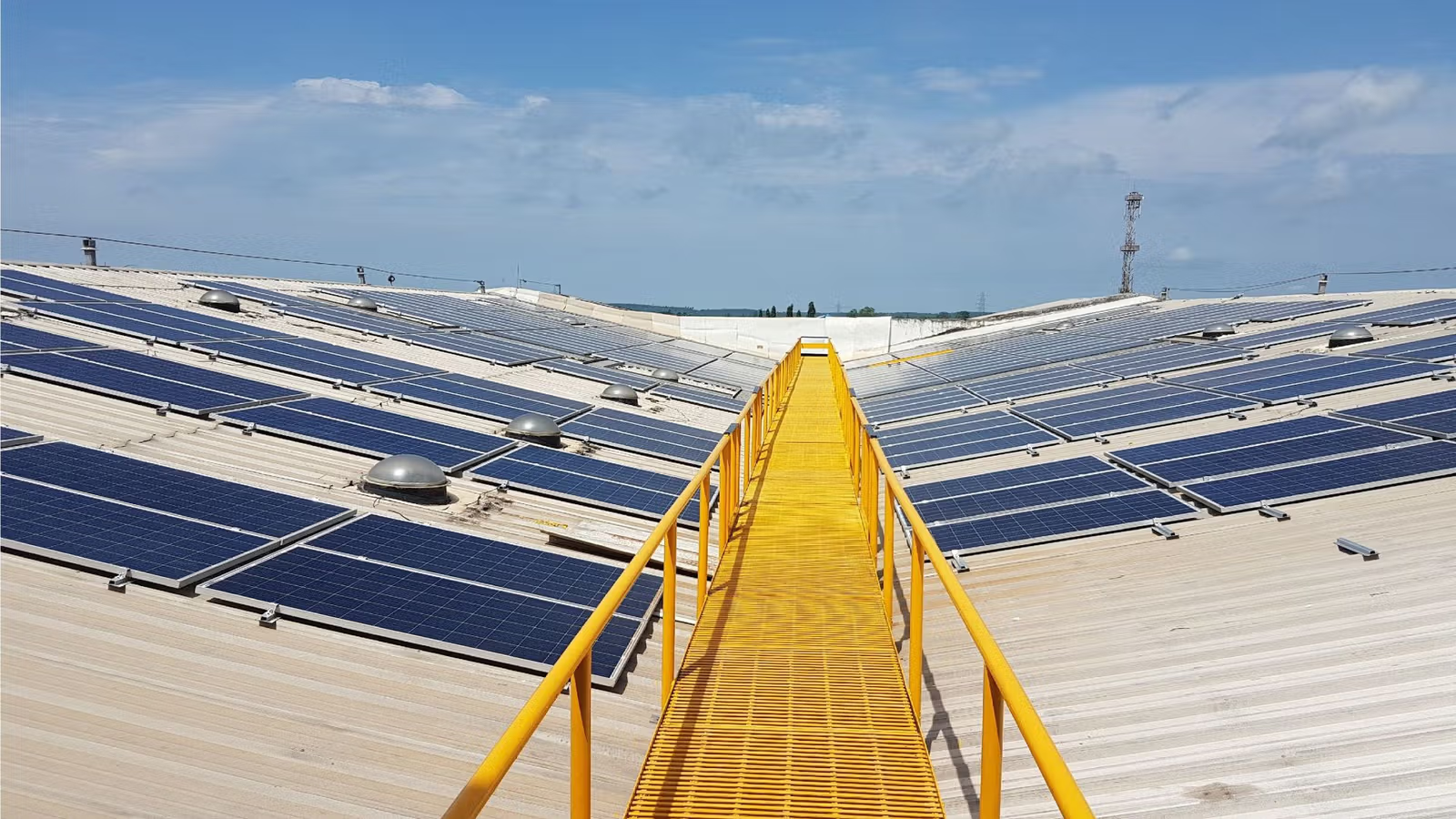Driving widescale change
Driving widescale change
Unilever’s updated Climate Transition Action Plan (CTAP) focuses on ten action areas where we can best drive positive impact by 2030. Some of these are:
- Growing our Supplier Climate Programme to help key suppliers become climate leaders
- Investing in deforestation-free supply chains
- Reformulating products to use lower-emission ingredients without compromising performance
Alongside actions like these, we’re pushing hard for system-level change. Change that will address barriers to faster emissions reduction. The climate challenge is huge. And we’re facing it head-on.
Where climate meets science
Where climate meets science
Using our expertise in science and innovation, we’re working with partners to reformulate products using lower-emission ingredients, without compromising on product performance.
One of our biggest priorities is developing alternatives to fossil-fuel-based chemical ingredients in our laundry and cleaning products.
This is our biggest challenge in reaching our net zero ambition, and we can’t do it alone. We’re working with suppliers to pilot solutions like synthetic soda ash.
We’re also pushing the chemicals industry to transform, supported by government policies that would unlock a transition to renewable and recycled feedstocks.
Partnership with Tuticorin Alkali Chemicals and Fertilisers Limited and Carbon Clean Solutions
Partnership with Tuticorin Alkali Chemicals and Fertilisers Limited and Carbon Clean Solutions
We have partnered with Tuticorin Alkali Chemicals and Fertilisers Limited and Carbon Clean Solutions who have developed cutting-edge technologies, to capture the CO2 from the use of energy in their production processes and turn it into soda ash (Sodium Carbonate).
The soda ash from this partnership is an important ingredient in our detergent products like Rin, Wheel and Surf excel and will help us in our journey to reduce the carbon footprint of our detergent business.
Material transition for chemical industry to achieve Net Zero
Material transition for chemical industry to achieve Net Zero
India’s chemical industry, the 6th largest globally, contributes approximately 7% to the country’s GDP but is also a significant contributor to greenhouse gas (GHG) emissions. To achieve Net Zero, the chemical industry must undergo two critical transitions: (i) an energy transition from fossil fuels to renewable sources, and (ii) a material transition from fossil carbon to renewable carbon sources.
HUL has collaborated with Resource Efficiency and Circular Economy Industry Coalition (RECEIC); an industry coalition formed with support from Ministry of Environment, Forest and Climate Change (MOEFCC) during India’s G20 presidency. Through this platform we have brought together various key stakeholders of the chemical industry across the value chain and are chairing a working group on ‘Material Transition’ under the aegis of RECEIC.
White paper to accelerate Material Transition
In collaboration with FICCI, academia, policy organisations and inputs from industry leading partners, HUL has created a knowledge paper that recommends specific technology focus areas and policy interventions for accelerating ‘Material Transition’. The policy recommendations have been made under five key pillars: (i) Support for technology development (ii) Industry incentives to develop domestic manufacturing of bio-based chemicals at scale (iii) Development of a robust supply chain (iv) Risk financing and (v) Green public procurement and consumer awareness.
The paper was officially released during the inaugural session of the RECEIC Global Symposia on Resource Efficiency and Circular Economy.

Pathbreaking innovation – Stratos
We are on a journey to reduce our environmental footprint by using greener raw materials in our product formulations. In 2024, a path-breaking innovation ‘Stratos’ by our R&D teams helped us mark a significant transformation in the soap bars business. It helped us reduce the use of high GHG-impact palm oil and move to deforestation-free palm.
Decarbonising our operations and value chain
We continue to take climate action across our operations with a focus on eliminating fossil fuels and switching to renewable energy.
We are switching to renewable energy sources, such as wind, biomass, and solar energy. Implementing energy-efficient capital projects and infrastructural improvements have enabled us to reduce our energy consumption and eliminate the use of coal at all our manufacturing sites.
Indian Green Building Council certified
Our Sumerpur factory achieved IGBC’s (Indian Green Building Council) Platinum Certification for its outstanding green campus. The Sumerpur site is carbon neutral. No water is wasted through effective harvesting, recycling, and reuse. It is entirely powered by solar energy and incorporates several eco-friendly innovations. Initiatives such as natural ventilation, use of energy-saving equipment, and extensive tree plantation, with thousands of trees planted, further emphasise our persistent commitment to sustainability.

Decarbonising our transportation and logistics
With structural changes in manufacturing and distribution networks, our ‘Load more, travel less’ strategy has enhanced fuel-efficiency and reduced emissions in our transportation and logistics.
We are exploring the use of natural gas (LNG /CNG) for our logistics and actively engaging with EV suppliers for our last-mile operations.

Centre for Sustainability Leadership
HUL has partnered with the Federation of Indian Chambers of Commerce and Industry (FICCI) to launch the Centre for Sustainability Leadership.
Through this, we aim to accelerate the Indian corporate sector’s climate action by institutionalising sustainability leadership across FICCI members, small and medium enterprises and micro small and medium enterprises.

Nurturing startups working on Climate Action
HUL has partnered with IIM Bangalore’s NSRCEL, the startup hub at IIM Bangalore, to launch the Climate Incubation Hub. Through this unique collaboration between industry and academia, we aim to nurture Indian startups working on climate action and support them in accelerating the pace of transformational and scalable climate innovations.

Our Climate targets
Net Zero emissions across our value chain by 2039
Reduce absolute operational GHG emissions (Scope 1 & 2) by 100% by 2030 from a 2015 baseline
Reduce absolute Scope 3 energy and industrial GHG emissions by 42% by 2030 from a 2021 baseline
Reduce absolute Scope 3 forest, land and agriculture (FLAG) GHG emissions by 30.3% by 2030 from a 2021 baseline
